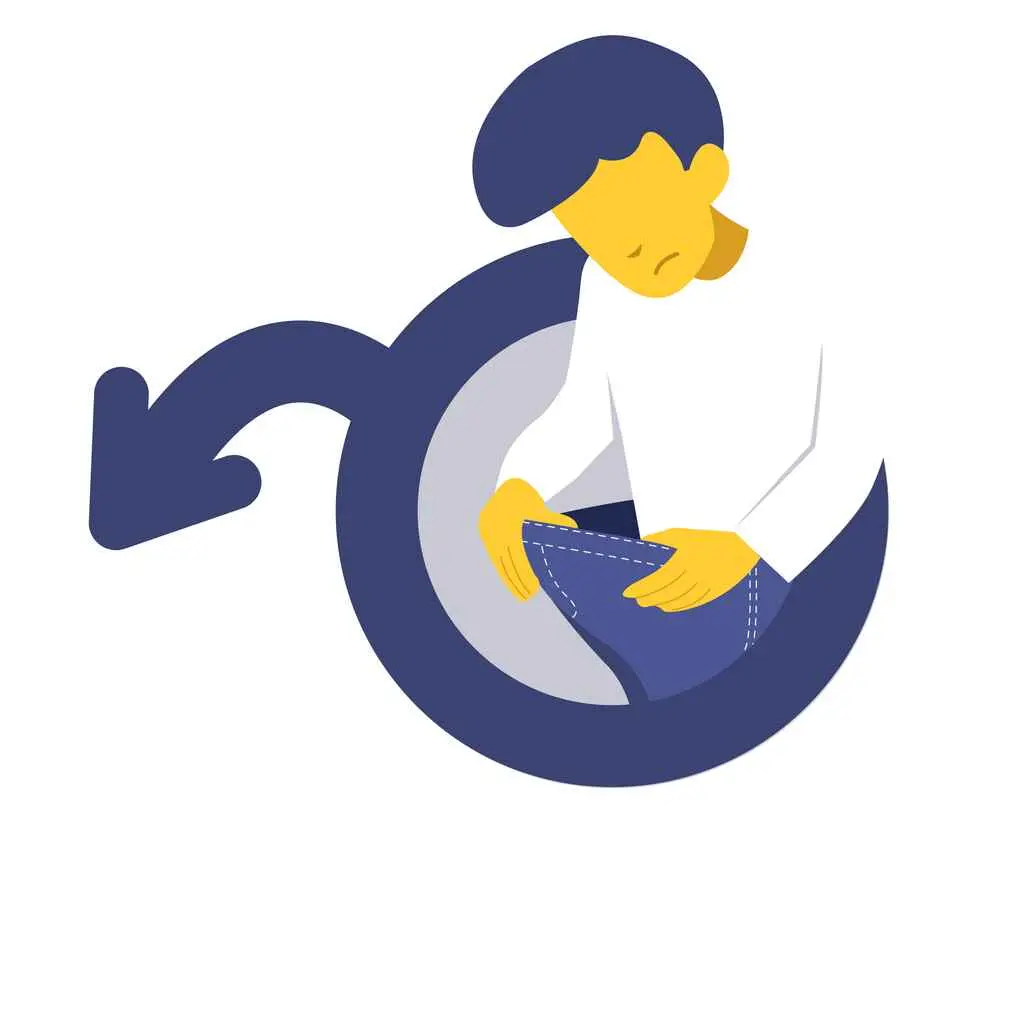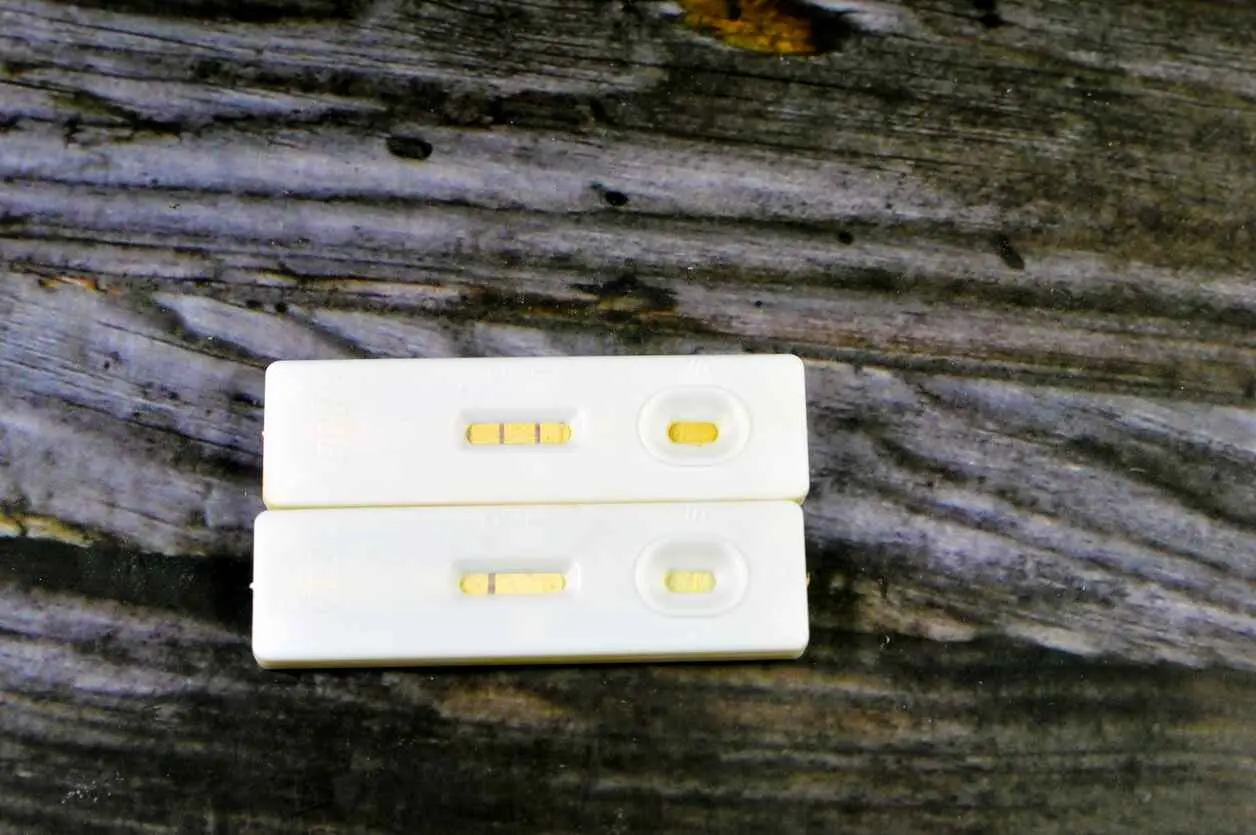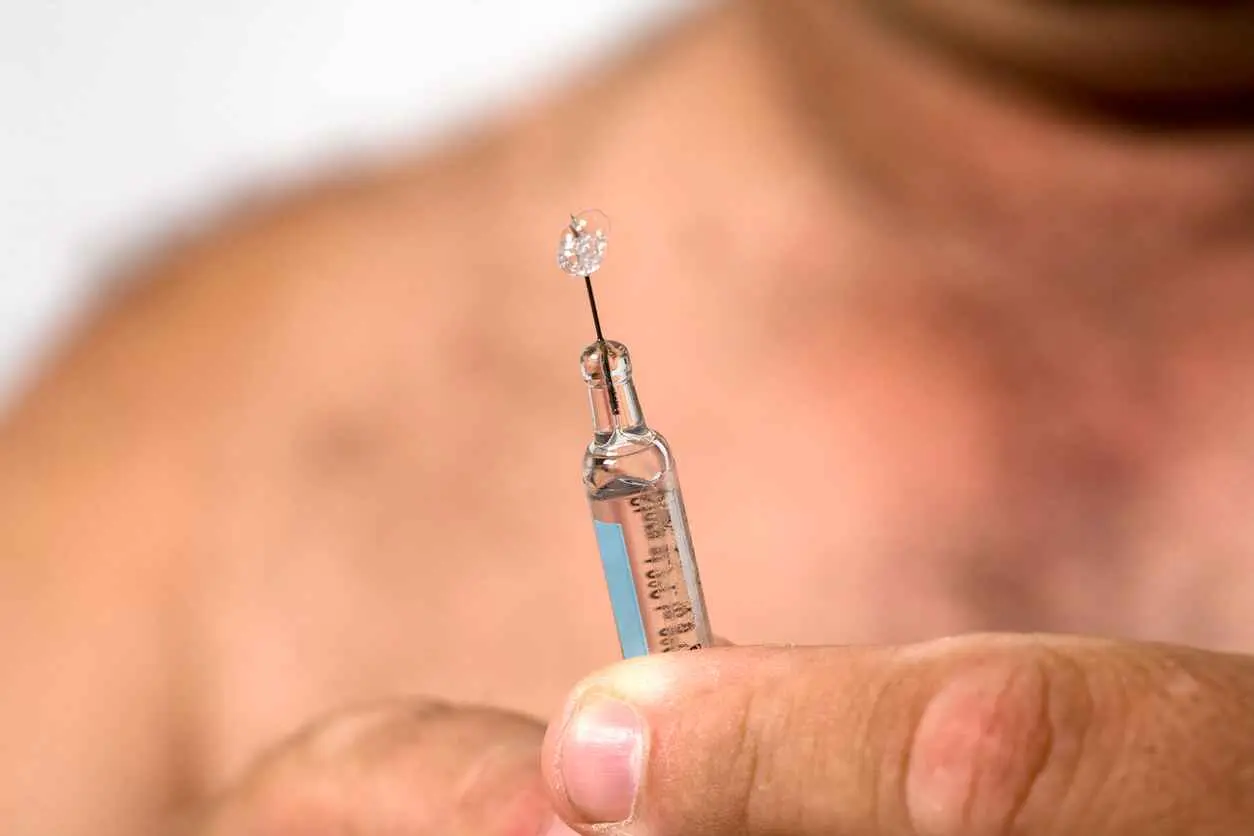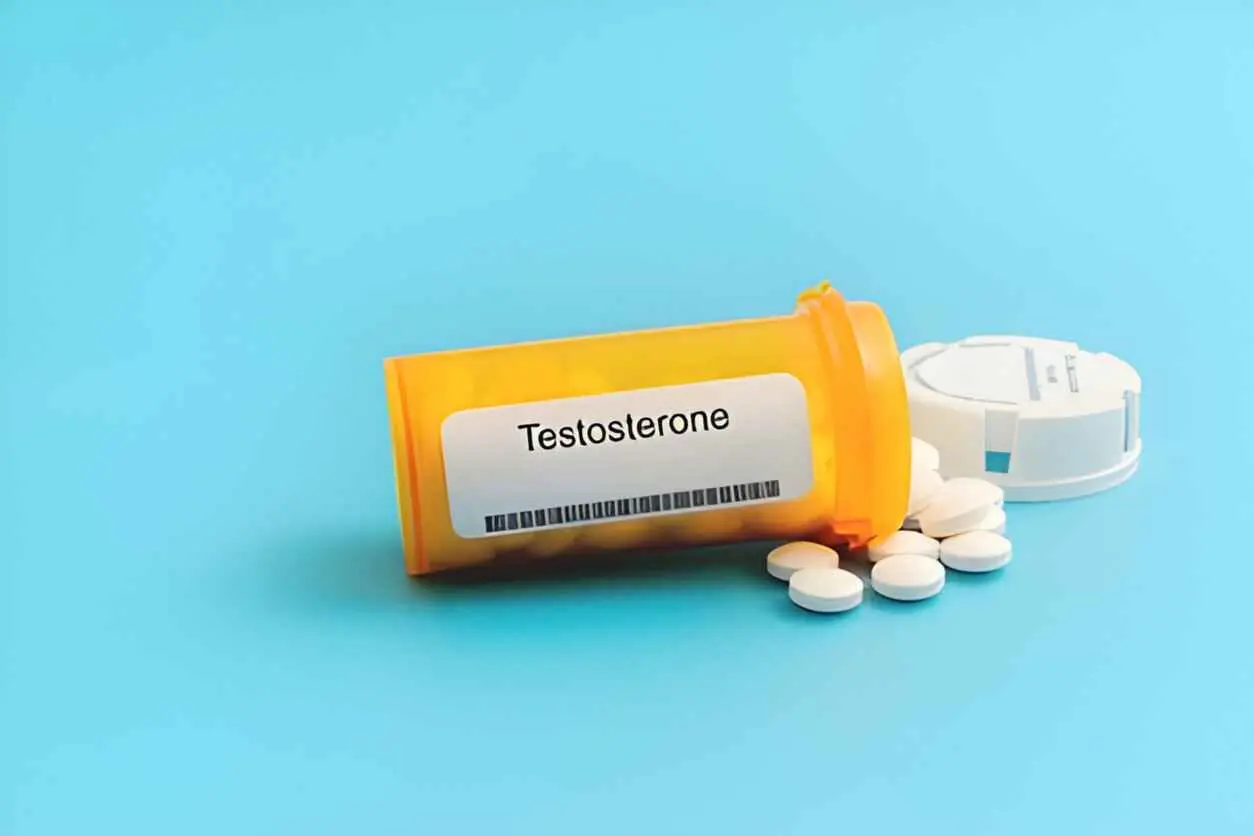
What’s The Link between Testosterone Deficiency And Erectile Dysfunction
What’s The Link between Testosterone Deficiency And Erectile Dysfunction
Could low testosterone be quietly affecting your erections?
Low testosterone does not only reduce sex drive. It can also make it harder for some men to get or keep an erection. Studies show that men with very low testosterone may be more likely to have problems with erections, especially as they get older (NIH study).
Erectile dysfunction, often called ED, means finding it difficult to have or keep an erection that is firm enough for sexual activity. It is very common in men over the age of 50, but younger men can also experience it. The causes of ED are many and can include problems with blood flow, nerve health, mental wellbeing, and hormones (Wikipedia). Testosterone, the main male hormone, helps to control sexual desire, mood, and healthy blood vessels. When levels fall too low, a condition called hypogonadism, ED is more likely to appear (World Journal of Men’s Health).
In this blog, we will explore the link between testosterone deficiency and erectile dysfunction. You will learn how testosterone works in the body, how doctors check for low levels, what research tells us, and what treatments are available. We will also look at the lifestyle and health factors that connect the two conditions. To make it clearer, we will use simple tables to show the main symptoms and causes.
The Basics: Testosterone and Erectile Function
What is testosterone?
Testosterone is the main male sex hormone. It is made in the testicles and also in small amounts in the adrenal glands. Testosterone is important for many things in the body. It helps boys grow into men during puberty, it supports strong bones and muscles, it gives energy, it affects mood, and it helps the body make sperm (NIH).
Testosterone and sexual health
Testosterone plays a big role in sexual health. It helps to control sex drive, also called libido, and it supports normal erections. When testosterone levels are too low, men may notice less interest in sex and may find it harder to get or keep an erection.
How an erection works
An erection happens when the brain and nerves send signals that increase blood flow to the penis. Blood vessels relax and open so that more blood can enter. Testosterone helps this process by supporting the release of special chemicals such as nitric oxide, which allow the blood vessels to open properly (PubMed).
The balance of hormones
Testosterone is only one part of what makes an erection possible. Good blood flow, healthy nerves, and mental wellbeing are also needed. Having more testosterone than normal does not make erections stronger. What matters is having enough testosterone to allow the body’s systems to work together smoothly.
What is needed for an erection
|
Key Factor |
How it helps |
|
Testosterone |
Supports sex drive and helps release chemicals that allow blood vessels to relax |
|
Blood flow |
Fills the penis with blood to make it firm enough for sex |
|
Nerve signals |
Carry messages from the brain to trigger the erection process |
|
Mental wellbeing |
Reduces stress and worry, which can affect sexual performance |
How Is Erectile Dysfunction Diagnosed?
If you’re experiencing difficulty getting or maintaining an erection, it’s important to see a doctor so the underlying cause can be identified and the right treatment provided.
Diagnosis usually begins with a detailed medical history and physical examination. Your doctor will ask about your lifestyle, overall health, and any risk factors. Common questions include:
- How physically active are you?
- Do you exercise regularly?
- Do you smoke or drink alcohol? If so, how much and how often?
- Are you currently taking any prescription or over-the-counter medications?
- How long have you been experiencing symptoms, and are they consistent or occasional?
After discussing your history, the doctor will perform a physical exam, focusing on the genitals to check for signs of underlying health issues.
In some cases, additional tests may be ordered to better understand the cause of erectile dysfunction. These may include:
- Blood tests: to measure testosterone and check for diabetes, cholesterol, or other health concerns.
- Urine tests: to look for signs of diabetes or kidney issues.
- Ultrasound: to assess blood flow to the penis.
- Imaging tests (such as a pelvic X-ray, if needed) – to rule out structural causes.
These steps help your doctor determine whether the condition is due to physical, psychological, or lifestyle factors, allowing them to recommend the most effective treatment.
How Does Low Testosterone Affect Erectile Function?
Testosterone plays an important role in sexual health, but when levels drop below 300 nanograms per deciliter (ng/dL), it may indicate low testosterone (often called low T).
Men with low T often notice a reduced sex drive and may have difficulty achieving or maintaining an erection. Research shows that testosterone influences erections in several ways:
- Brain chemistry: Testosterone supports the production of key chemical messengers, such as dopamine, oxytocin, and nitric oxide, that help trigger and sustain erections.
- Nerve signaling and blood flow: Testosterone stimulates spinal nerves that control blood vessels in the penis. These signals relax specific muscles, allowing increased blood flow and creating the pressure needed for an erection.
That said, low testosterone is rarely the sole cause of erectile dysfunction. Many men with normal hormone levels still experience ED due to factors like cardiovascular disease, stress, or medication side effects.
Because ED often has multiple contributing causes, it’s important to undergo a thorough evaluation before starting treatment. If low testosterone is identified as the main issue, your doctor may recommend testosterone replacement therapy (TRT) to restore hormone levels and improve sexual function.
Other Symptoms of Low Testosterone in Men
Erectile dysfunction isn’t the only sign of low testosterone. Men with low T may experience a wide range of symptoms that affect both physical and emotional health. Common signs include:
- Reduced sexual desire (low libido)
- Loss of muscle mass or strength
- Mood changes such as irritability or increased anxiety
- Weaker bones (osteoporosis risk)
- Persistent fatigue or low energy
- Low self-esteem and reduced confidence
- Depressive thoughts or symptoms of depression
- Memory or concentration problems
- Increased body fat, especially around the abdomen
- Thinning or loss of body and facial hair
If your erectile dysfunction is linked to low testosterone, you may notice several of these additional symptoms alongside sexual difficulties.
How Testosterone Supports Erectile Health
|
Testosterone Function |
Impact on Erectile Health |
|
Brain chemical production |
Supports dopamine, nitric oxide, and oxytocin, which help trigger erections and sexual desire. |
|
Spinal nerve stimulation |
Sends signals that relax penile muscles, allowing blood to flow and create an erection. |
|
Libido regulation |
Enhances sexual desire and arousal. |
|
Mood and confidence support |
Reduces anxiety and depression that can interfere with performance. |
|
Muscle tone and blood flow |
Improves stamina, circulation, and overall physical health—all important for erectile function. |
What Causes Low Testosterone (Low T)?
Low testosterone can develop when either the testes don’t produce enough testosterone or the brain doesn’t send the proper signals to the testes to stimulate production.
Primary Hypogonadism (Testicular Causes)
This occurs when the testes are unable to make sufficient testosterone, even when they receive signals from the brain. Common causes include:
- Injury or infection of the testes
- Chemotherapy or radiation treatment for testicular cancer
- Undescended testes (a condition present at birth)
- Genetic conditions such as Klinefelter syndrome
Secondary Hypogonadism (Brain or Hormonal Signal Causes)
This happens when the pituitary gland or hypothalamus—the parts of the brain responsible for controlling hormone release—fail to send the right signals to the testes. Common causes include:
- Pituitary disorders (tumors or gland dysfunction)
- Certain medications, including some antidepressants and opioids
- Chronic conditions, such as type 2 diabetes or obesity
- Ageing, which naturally lowers testosterone levels over time
How Do Doctors Diagnose Low Testosterone?
Just like erectile dysfunction, low testosterone (low T) can have many different causes, and identifying the underlying reason is key to choosing the right treatment.
When you visit your doctor, the diagnostic process usually involves:
- Medical history and physical exam – Your doctor will ask about your symptoms, lifestyle, and medical background, then perform a physical examination to look for signs of low T (such as reduced muscle mass, hair loss, or testicular changes).
- Blood tests – The most important step is measuring testosterone levels in your blood. Both total testosterone and free testosterone are checked to get a complete picture.
- The test is typically done in the morning, when testosterone levels are at their peak.
- If results show low levels, your doctor will usually repeat the test on another day to confirm the diagnosis.
- Determining the cause – Once low T is confirmed, your doctor will run additional tests if needed to figure out whether it’s caused by:
- Primary hypogonadism (a problem with the testes), or
- Secondary hypogonadism (a problem with the brain’s signaling).
Treatment depends on the cause, but the most common option is testosterone replacement therapy (TRT), which helps restore hormone levels and improve symptoms.
How To Treat Erectile Dysfunction Caused by Low Testosterone
If erectile dysfunction (ED) is linked to low testosterone (low T), testosterone replacement therapy (TRT) may be an effective treatment option.
TRT works by supplementing the body with synthetic testosterone to restore healthy hormone levels. It can be administered in several forms, including:
- Injections
- Skin patches
- Topical gels or creams
- Implantable pellets
- Oral medications (less commonly used)
Your doctor will determine the right form and dosage based on your testosterone levels, overall health, and response to treatment. Regular monitoring ensures your hormone levels stay balanced and helps minimize side effects.
Benefits of Testosterone Replacement Therapy
Many men who undergo TRT report improvements such as:
- Increased libido and sexual function
- Improved mood and emotional well-being
- Greater self-confidence
- Higher energy levels and reduced fatigue
- Fewer depressive symptoms
- Better erectile function when low T is the underlying cause
Who Should Avoid Testosterone Replacement Therapy (TRT)?
While testosterone replacement therapy (TRT) can be highly beneficial for men with low testosterone, it isn’t suitable for everyone. In some cases, TRT can worsen existing health conditions or increase certain risks.
You may be advised to avoid TRT if you have:
- Prostate cancer (current or suspected)
- Breast cancer
- Benign prostatic hyperplasia (BPH), or an enlarged prostate with severe urinary symptoms
- Congestive heart failure or uncontrolled heart problems
- Obstructive sleep apnea that is untreated
Because TRT can stimulate prostate tissue, affect fluid balance, and influence red blood cell production, it’s important to undergo a thorough medical evaluation before starting therapy.
Your doctor will weigh the potential benefits against the risks and may recommend alternative treatments if TRT isn’t appropriate for you.
Frequently Asked Questions
What is the connection between low testosterone and erectile dysfunction?
Low testosterone can reduce sex drive and affect brain chemicals and nerve signals that help with erections. While low T alone rarely causes erectile dysfunction, it can make the condition worse and lower overall sexual performance.
How do doctors test for low testosterone levels in men?
Doctors usually order a morning blood test to measure total and free testosterone levels. If the results show low testosterone, the test is repeated to confirm, and additional hormone tests may be done to find the root cause.
Can testosterone replacement therapy improve erectile dysfunction?
Testosterone replacement therapy (TRT) may improve erectile dysfunction in men whose ED is caused by low testosterone. It helps restore hormone balance, increase libido, and improve erection quality when low T is the main factor.
What are the common symptoms of low testosterone in men?
Men with low testosterone often experience erectile dysfunction, reduced libido, fatigue, loss of muscle mass, weight gain, mood swings, low self-esteem, and thinning body hair. These signs can help identify low T early.
What causes low testosterone in men?
Low testosterone may result from testicular damage, genetic disorders, infections, chemotherapy, or natural aging. Secondary causes include pituitary gland disorders, certain medications, diabetes, and obesity that disrupt hormone signals.
Who should not take testosterone replacement therapy?
Men with prostate cancer, breast cancer, untreated sleep apnea, severe urinary symptoms from prostate enlargement, or uncontrolled heart failure should avoid TRT because it can worsen these medical conditions.
How is erectile dysfunction diagnosed by a doctor?
Erectile dysfunction diagnosis involves a medical history, physical exam, and sometimes lab tests like testosterone levels, blood sugar, cholesterol, or ultrasound. This helps doctors identify if ED is caused by low testosterone or other health issues.
What are the risks and side effects of testosterone replacement therapy?
TRT can cause acne, fluid retention, increased red blood cell count, and decreased sperm production, leading to infertility. Long-term risks may include prostate enlargement and cardiovascular concerns, so regular monitoring is essential.
Final Thoughts: ED and Low Testosterone Treatment
Erectile dysfunction can make a man feel less confident and lower his self-esteem. You should talk to your doctor to find a solution if you have this condition.
Testosterone replacement therapy can help reduce symptoms of erectile dysfunction in men with low testosterone levels. If your testosterone is below 300 ng/dL, discuss the benefits and risks of this treatment with your doctor before choosing it for ED.


